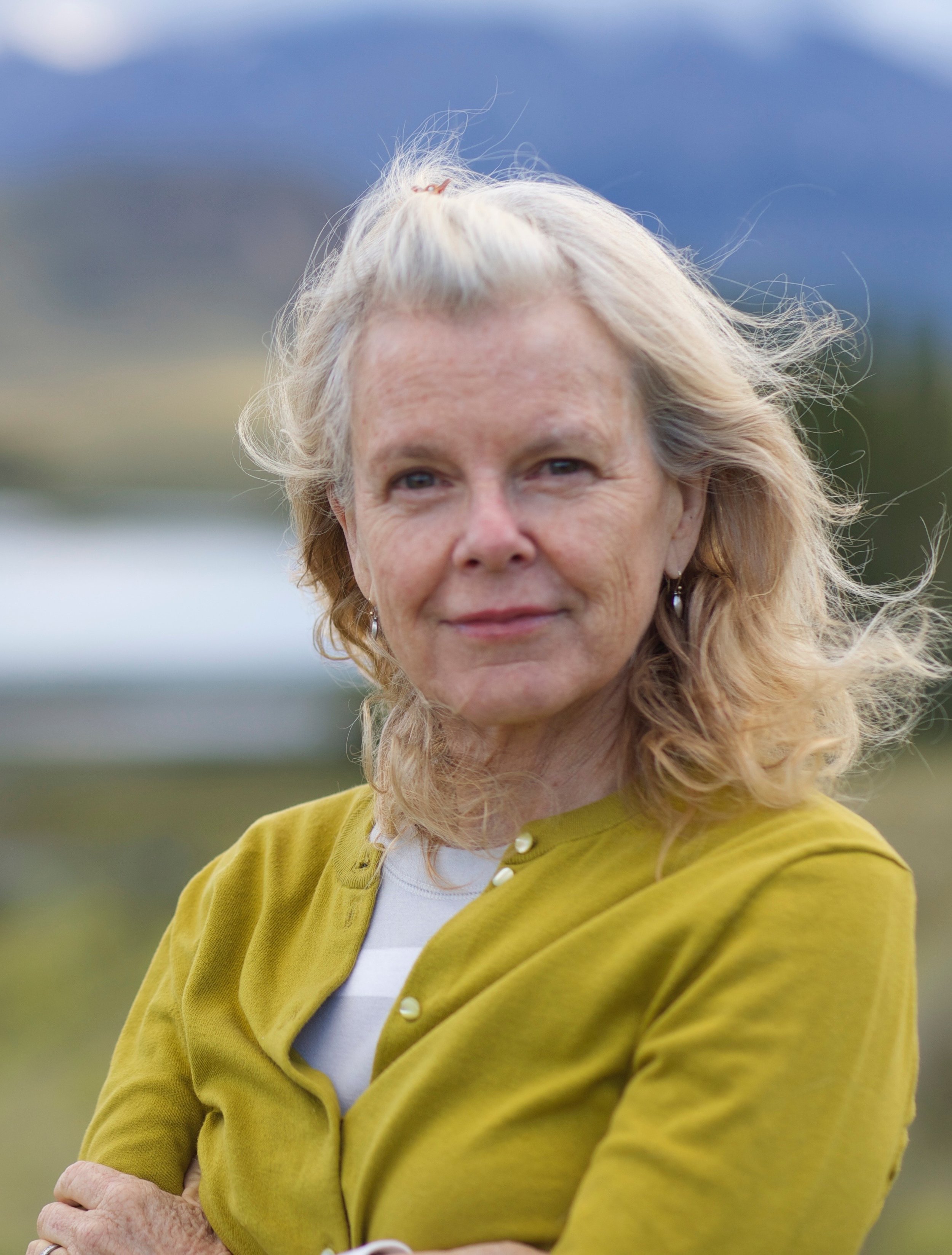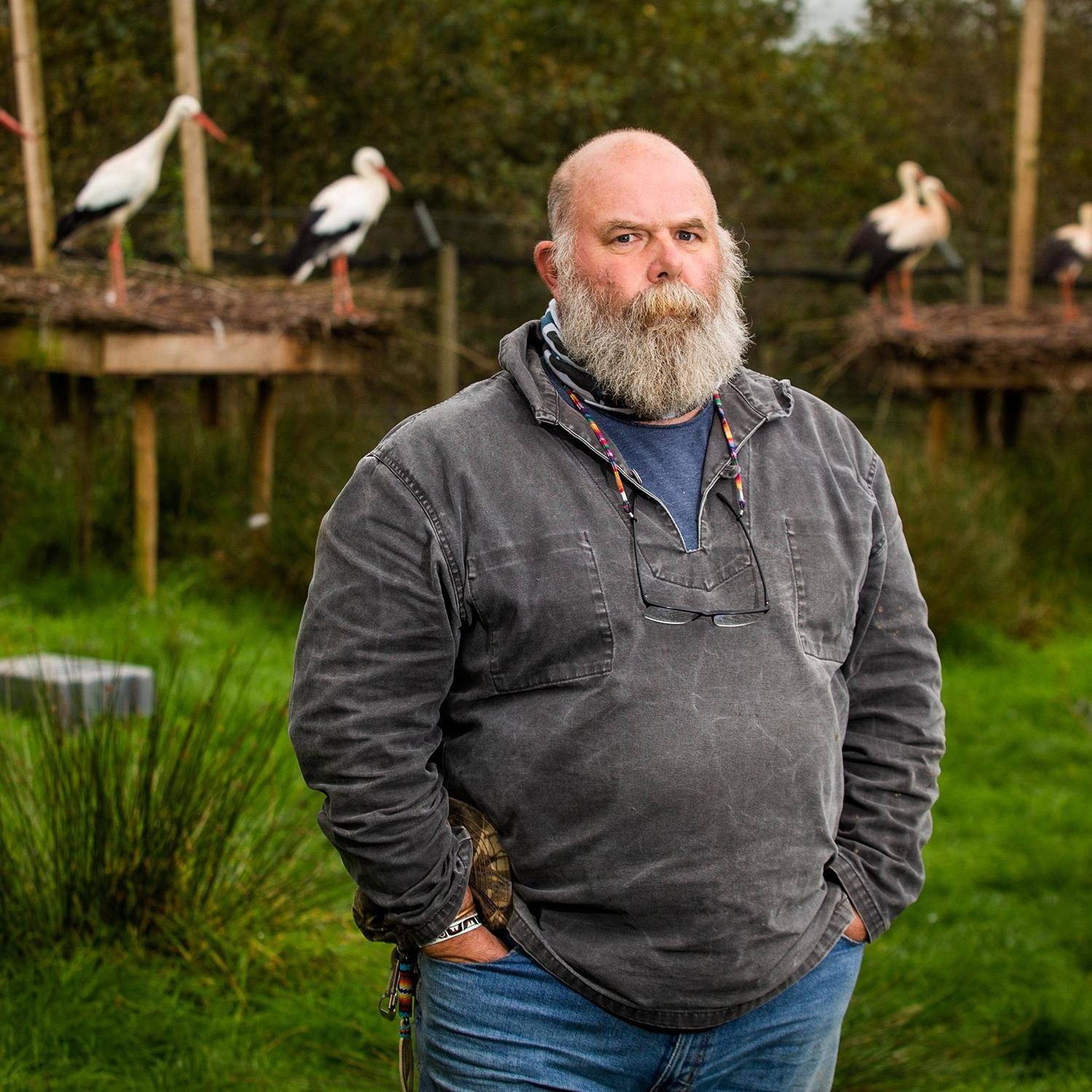2 . Rewilding: The Return of Exuberant Landscapes
“With the return of beaver, you start the ecosystem function again. The light goes back on. Every other guild of life that is still there looks at these green oases forming, and sliver, fly, crawl, or trot to back find them.”
- Derek Gow
“I'm a student of beauty now, and I will study beauty until the day i die, and hopefully after I'm dead - because then things could get really beautiful.”
- Kristine Tompkins
SYNOPSIS:
The rewilding movement is currently sweeping across the world’s landscapes, restoring ecologies and species, re-naturalising rivers and forests. To rewild, you must be able to see the world through the eyes of other species and decipher the role that even the smallest creature might play in the web of life. Our two guests today are trailblazers in this space. First we hear from Kristine Tompkins, ex-CEO of Patagonia who together with her late husband Doug Tompkins has protected over 14 million acres of wildlands and national parks across Latin America, along with over 30 million acres of marine areas. Kristine is Chair of the National Geographic Society’s Last Wild Places campaign and was the first conservationist to be awarded the Carnegie Medal of Philanthropy.
Then we speak with Derek Gow, who is infamous amongst insider rewilding circles for his leadership in the re-introduction of the beaver back into European landscapes. Through Derek and his delightfully funny and informative book “Bringing back the Beaver” I’ve become somewhat obsessed with beavers. He’s been one of the most vocal actors in the reintroduction of missing keystone species in England such as the water vole and the white stork, butting heads with obnoxious lobbyists and government officials, and currently is rewilding his 300-acre farm on the Devon/Cornwall border where a motley crew of Eurasian lynx, wild boar and harvest mice make home.
This episode covers the basics of rewilding and goes into different models of restoring ecosystems into their rightful states, all the while discussing the mental impediments and frustrations that can occur in the attempt to rewild the most stubborn species of all — the human being.
GUESTS BIOS:
Kristine Tompkins is the president and co-founder of Tompkins Conservation, an American conservationist, and former CEO of Patagonia. For nearly thirty years with her late husband Doug Tompkins, she has committed her career to protecting and restoring wild beauty and biodiversity by creating national parks, restoring wildlife, inspiring activism, and fostering economic vitality as a result of conservation.
As the president of Tompkins Conservation, Kristine Tompkins oversees a multitude of projects rewilding the Americas. Having protected approximately 14.7 million acres of parklands in Chile and Argentina through Tompkins Conservation and its partners, Kristine and Douglas Tompkins, her late husband who died in 2015, are considered some of the most successful national park-oriented philanthropists in history.
Kristine Tompkins serves in various positions of global leadership in conservation, including as Chair of National Geographic Society’s Last Wild Places campaign. She was the first conservationist to be awarded the Carnegie Medal of Philanthropy. In 2018 she was named the United Nations’ Global Patron for Protected Areas.
The full episode with Kris can be found here!
Derek Gow is a farmer, nature conservationist and the author of Bringing Back the Beaver. Born in Dundee in 1965, he left school when he was 17 and worked in agriculture for five years. Inspired by the writing of Gerald Durrell, he jumped at the chance to manage a European wildlife park in central Scotland in the late 1990s before moving on to develop two nature centres in England.
He now lives with his children, Maysie and Kyle, on a 300-acre farm on the Devon/Cornwall border, which he is in the process of rewilding. Derek has played a significant role in the reintroduction of the Eurasian beaver, the water vole and the white stork in England. He is currently working on a reintroduction project for the wildcat and a book on our lost wolves.
Gow owns a farm in Lifton, Devon, which is home to captive breeding facilities, accommodation and a working farm. Much of the land is under the process of rewilding, alike to the Knepp Estate. The farm is home to many species, including Eurasian lynx, wild boar, beavers, white storks and harvest mice.
The full episode with Derek can be found here!
QUOTES:
Kristine
I like the intensity of what I think is a wild life and a wild mind. I have come to seek that out and to have that confrontation with the true world.
If you are going to rewild key species, you have to eradicate the reasons they went extinct in the first place. There is a tremendous amount of work to do in the socialisation of species coming back. With the jaguar, for years we socialised the idea that the rockstar of the province had the chance to come home.
I’m a student of beauty now and I will study beauty now until the day I die, and hopefully after I’m dead — because then things could get really beautiful.
National parks were never the goal. The goal was always to create properly functioning ecosystems. For that, we have to go back in and reintroduce the missing keystone species
We are all deeply capable of being self realized at any moment in our lives.
Derek
The idea for many people that we are going to have to live alongside any species that “takes” anything from us is just unacceptable — especially when it comes to animals like the beaver or the wolf.
If you want to see what an end game looks like in the Northern hemisphere, then you just come to Britain.
With the return of beaver, you start the ecosystem function again. The light goes back on. Every other guild of life that is still there looks at these green oases forming, and sliver, fly, crawl, or trot to back find them.
There are the people who have always picked an answer, and the answer is NO. Then they sit in a dark room maybe with a few of their wee mates who think the same who come along to join them, and they come up with a biggest heap of sh** you can ever imagine.
The wolf, like many other wild animals, existed with us at a time when we looked up to them and they were gods. They had powers that we didn't have.
As soon as you have an aggressive colonial culture or a frontier culture, it views animals, wilderness, and people all as obstructions.
I can't be doing with these groups that jump up and down and screaming that glue themselves to things because at the end of the day, there's no pragmatic agenda for doing anything.
You have to start to look at what's in you and pull it out of the immediacy of yourself. Appreciate how lucky you are to be given the opportunity to do something.
LINKS
REWILDING
Photo Credit (flower): Maewenn Bourcelot





![[Full Length] Unexpected Agricultures — with Lyla June Johnston](https://images.squarespace-cdn.com/content/v1/61e5960411275129ba0c607d/1658128435444-KBCFLKI45Y754WXVUYCZ/Agriculture-Lyla.jpg)
![[Full Length] Unexpected Agricultures — with Michael Ableman](https://images.squarespace-cdn.com/content/v1/61e5960411275129ba0c607d/1658129338344-U3GK0WTQJL9YQU1DIPVK/Agriculture-Michael.jpg)